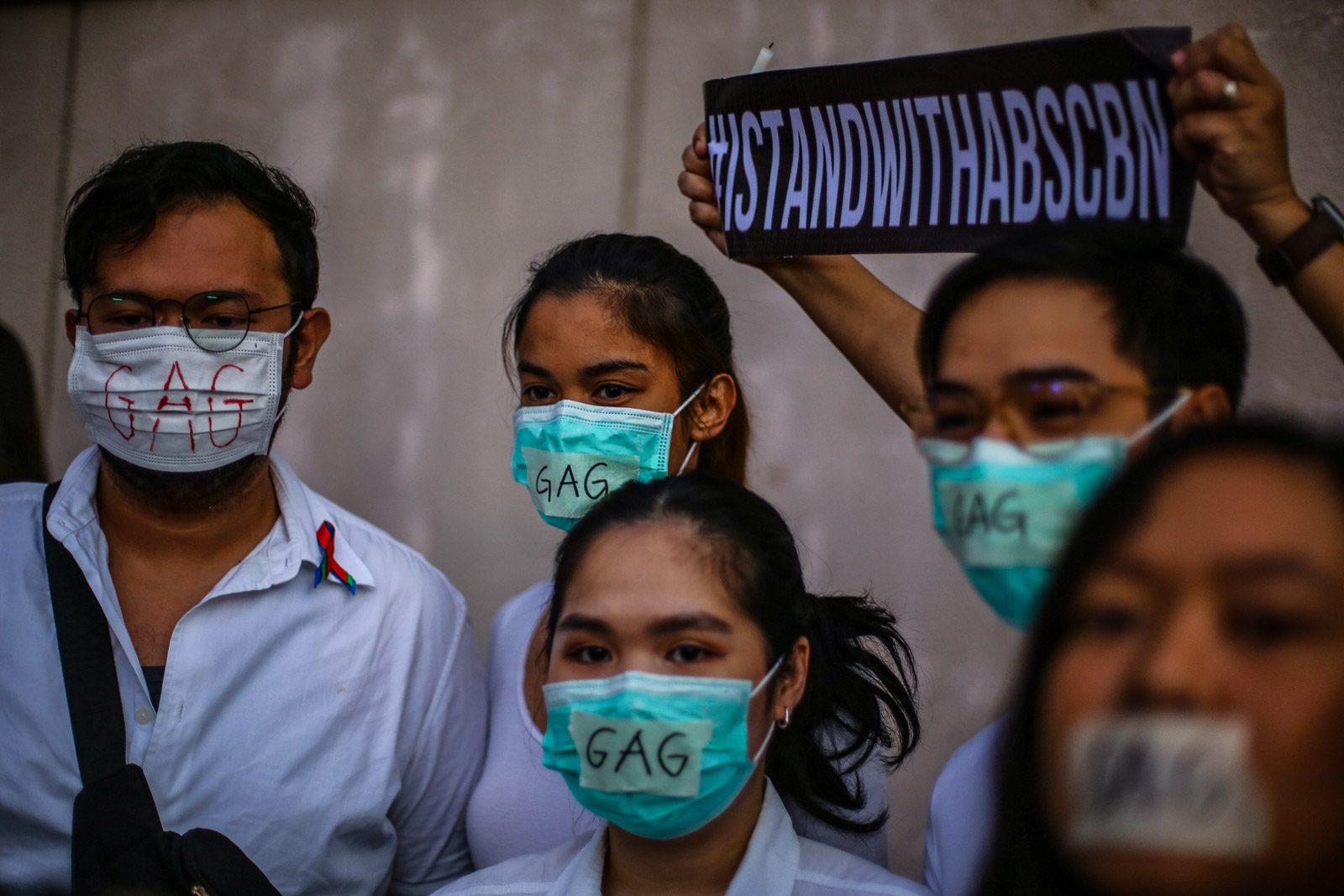SUMMARY
This is AI generated summarization, which may have errors. For context, always refer to the full article.

MANILA, Philippines – TV Network ABS-CBN pleaded with the Supreme Court not to grant Solicitor General Jose Calida’s request for a gag order, saying it’s a form of prior restraint that the High Court had previously declared unconstitutional.
“Indeed, in this jurisdiction, the sub judice rule is implemented not by prior restraint on speech but by subsequent punishment of conduct that impedes, obstructs or interferes with the administration of justice,” ABS-CBN said in a comment filed before the Supreme Court on Monday, February 24, excerpts of which were quoted by ABS-CBN’s report.
ABS-CBN has not provided a copy of its comment, and the Supreme Court said it also would not be able to provide a copy citing confidentiality.
Prior restraint is defined in the Supreme Court cases Chavez vs Gonzales as requiring “some form of permission to be had before publication,” and called it “an infringement of the constitutional right.”
Calida said ABS-CBN’s statements, either through its official channels or by its artists and supporters, as well as the news department’s reports on the issue, violate the rule on sub judice.
“The sub judice rule should not be applied to impair, through prior restraint, the fundamental freedoms of speech and of the press that serve as bedrocks of a democratic society,” ABS-CBN said.
ABS-CBN told the Supreme Court it does not believe that continued discussion on the issue would influence the justices – contrary to what Calida said in his petition.
“To presume that the Members of the Honorable Court would be unable to render impartial judgment merely because of public discussion of the issues involved in the Petition is to diminish their intelligence, experience and independent thought,” the comment said.
ABS-CBN also asked the Supreme Court: what is the clear and present danger in publishing stories about the case?
Clear and present danger is an element that must be present to justify a government restriction on the constitutional right to freedom of expression.
“The Republic failed to show how the subject publications create a clear and present danger of impairing the proceedings before this Honorable Court…No danger is, however, apparent from a mere perusal of the publications,” said the network.
Vague
Calida, in his urgent motion for a gag order, cited as violation of sub judice news reports and articles quoting experts. It also sought to gag “persons acting on behalf” of ABS-CBN.
The network said this is too vague.
“’Persons acting on their behalf’ is also vague. Would anyone making public statements in favor or against a party be acting on their behalf?” the network said.
“There exists a less restrictive remedy to implement the sub judice rule, i.e., through indirect contempt proceedings. Indeed, in this jurisdiction, the sub judice rule is implemented not by prior restraint on speech but by subsequent punishment of conduct that impedes, obstructs or interferes with the administration of justice,” said ABS-CBN.
Integrated Bar of the Philippines (IBP) president Domingo Egon Cayosa said that “there is no specific sub judice rule.”
“It is the court’s duty to determine whether or not such grounds exist and to judiciously balance between freedom of expression/press and right to information vis-a-vis the court’s contempt power under the Rules of Court,” Cayosa said.
The Supreme Court will meet en banc on Wednesday, and is expected to tackle ABS-CBN’s comment. – Rappler.com
Add a comment
How does this make you feel?
There are no comments yet. Add your comment to start the conversation.